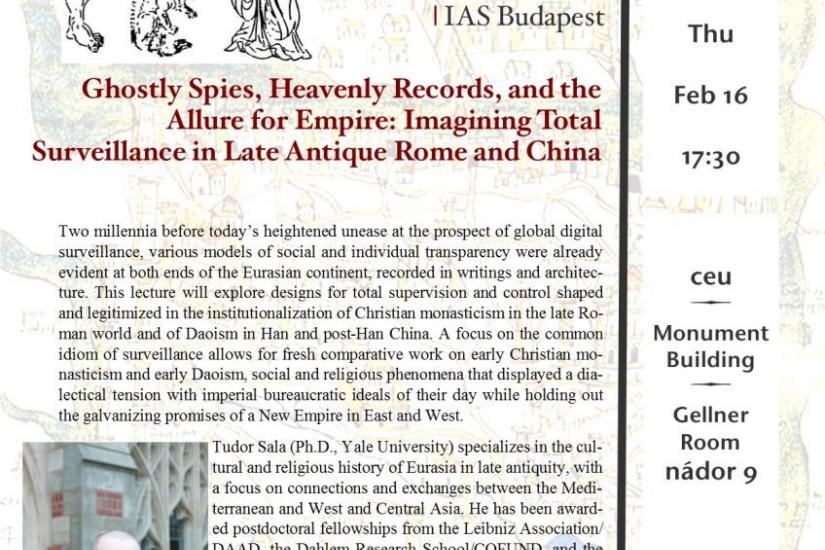
Two millennia before today’s heightened unease at the prospect of global digital surveillance, various models of social and individual transparency were already evident at both ends of the Eurasian continent, recorded in writings and architecture. This lecture will explore designs for total supervision and control shaped and legitimized in the institutionalization of Christian monasticism in the late Roman world and of Daoism in Han and post-Han China. A focus on the common idiom of surveillance allows for fresh comparative work on early Christian monasticism and early Daoism, social and religious phenomena that displayed a dialectical tension with imperial bureaucratic ideals of their day while holding out the galvanizing promises of a New Empire in East and West.
Tudor Sala (Ph.D., Yale University) specializes in the cultural and religious history of Eurasia in late antiquity, with a focus on connections and exchanges between the Mediterranean and West and Central Asia. He has been awarded postdoctoral fellowships from the Leibniz Association/DAAD, the Dahlem Research School/COFUND, and the Fritz Thyssen Foundation. He has held positions at the Römisch-Germanisches Zentralmuseum (2012-2013), the Johannes Gutenberg-Universität Mainz (2013-2014), and the Freie Universität Berlin (2014-2016). He is currently Junior Thyssen Fellow at the Institute for Advanced Study at CEU. While in Budapest he is working on a monograph entitled Surveillant Antiquities: Religion and the Invention of the Surveillance Society in the Ancient World.